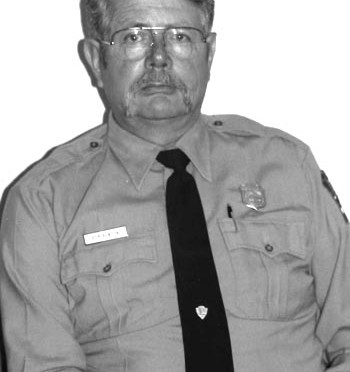I know about the Living and Working at Crater Lake circular.
Which, of course, badly needed done over. I guess it was. Anyway, one of the things that we did on key vacancies, if we were recruiting a chief of maintenance, we would have the administrative officer talk to administrative people associated with the candidate. We would have rangers talk to the ranger people about the chief of maintenance, with other rangers, about each candidate. So, in other words, I didn’t just talk to superintendents and say, “Hey, what’s this guy Ruesch like?” No, we didn’t do that. The chief ranger was talking to rangers where Ruesch had been.
So you tried to get some sort of peer input?
That’s right. You know, what was this guy like? We rejected just some absolutely wonderful-looking candidates on paper strictly due to that procedure. We used it on all the vacancies. And in all the time we used that particular procedure, it only failed twice. Actually, it really only failed us once. We picked a person at a point in time and the peer review divided between two candidates and it leaned one way. We took the way it leaned, and the other candidate turned out to be better, a lot better. They went on to do some absolutely wonderful things, Still, it’s a good technique because you do get a peer look, and technically, you get a certain amount of commitment. If George Buckingham is looking at an administrative officer and you hire that administrative officer, and George has said, “Hey, this is my preferred candidate,” George has a certain amount of commitment or investment in that person. He also knows a lot about them before they ever get there. Anyway, I’m sure that has gone by the wayside because it’s a pretty cumbersome system to use. But it does work. And that’s how we got all those folks that we just mentioned. It was pretty exhaustive.
I remember Jerry McCrea, and he was very impressed with what you were trying to do with getting rangers to do interpretive presentations as part of their performance evaluation. What led to that?
Again, it is a need for everybody to kind of walk a little bit in other people’s shoes. It’s very easy for rangers to get caught up in their world and lose track of the visitor as a person. Many times, the protection-type ranger is dealing with the visitor in a sense of other than total friendliness. If the person has got their dog off a leash, or if they’re throwing out a beer can, or they’re speeding, or any one of the myriad of other things that happen that require some degree of admonishment, you tend to lose track of, over a period of time, the fact that visitor basically comes to Crater Lake to have a good time. He’s not there deliberately to break laws. He’s not there to antagonize rangers. He’s not there to destroy the resource. He may inadvertently do all of those things, but he really is there for a good time. So by having the ranger deal with an interpretative program, you get that ranger on a different plane with the visitor. Second, you also get the ranger to think in terms of his role as it relates to the visitor. So suddenly, a lake program or whatever program they have to deal with, instead of being an abstract research tool, becomes something to talk about in the positive sense to the visitor directly.


